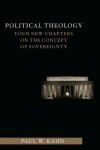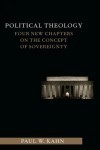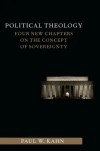
In the October 13 issue of the New York Review of Books, Mark Danner published a critique of the Bush administration’s policy on torture, under the title “Our State of Exception”. He didn’t give Carl Schmitt (or Paul Kahn) credit, but he could have. When the intellectual history of the past generation is written, one of the stranger items will be the unexpected resurrection of a sinister figure who might have seemed buried and forgotten, except for his admirers on the far right wing of respectable discourse.

At this moment of extreme political intensity, Paul W. Kahn’s new book, Political Theology, appears as a timely meditation. By means of a sustained engagement with the controversial German legal theorist Carl Schmitt’s text of the same name, Kahn attempts to demonstrate that behind our seemingly liberal, constitutional order is a deep faith in the sacred character the state and of popular sovereignty. One is tempted to read Kahn’s juxtaposition of the discourses of (liberal) political theory and political theology as a commentary on struggle between the Obama Administration and the contemporary Republican (and Tea) Party—the one stressing reason, deliberation, pragmatism, compromise; the other embracing faith, will, power, sacrifice. Kahn, however, is more subtle than that. His slim volume is a provocative, sometimes frustrating, sometimes perplexing read, providing much food for thought, and also, I can imagine, for fights.

Kahn assumes the United States, as a state, to be a ‘norm’ and does not seem to grapple with anything or anyone external to it: his focus is internal. I would like to suggest that immigrants have been constructed as the quintessential exception – an exception made on the basis of nationalism rather than liberal political theory, though – and that this is generating the kinds of restrictive immigration legislation… Would-be-immigrants are dealt with outside the nation (offshore processing) or hidden within it (detention), preventing their access to legal ‘norms’ available to citizens.